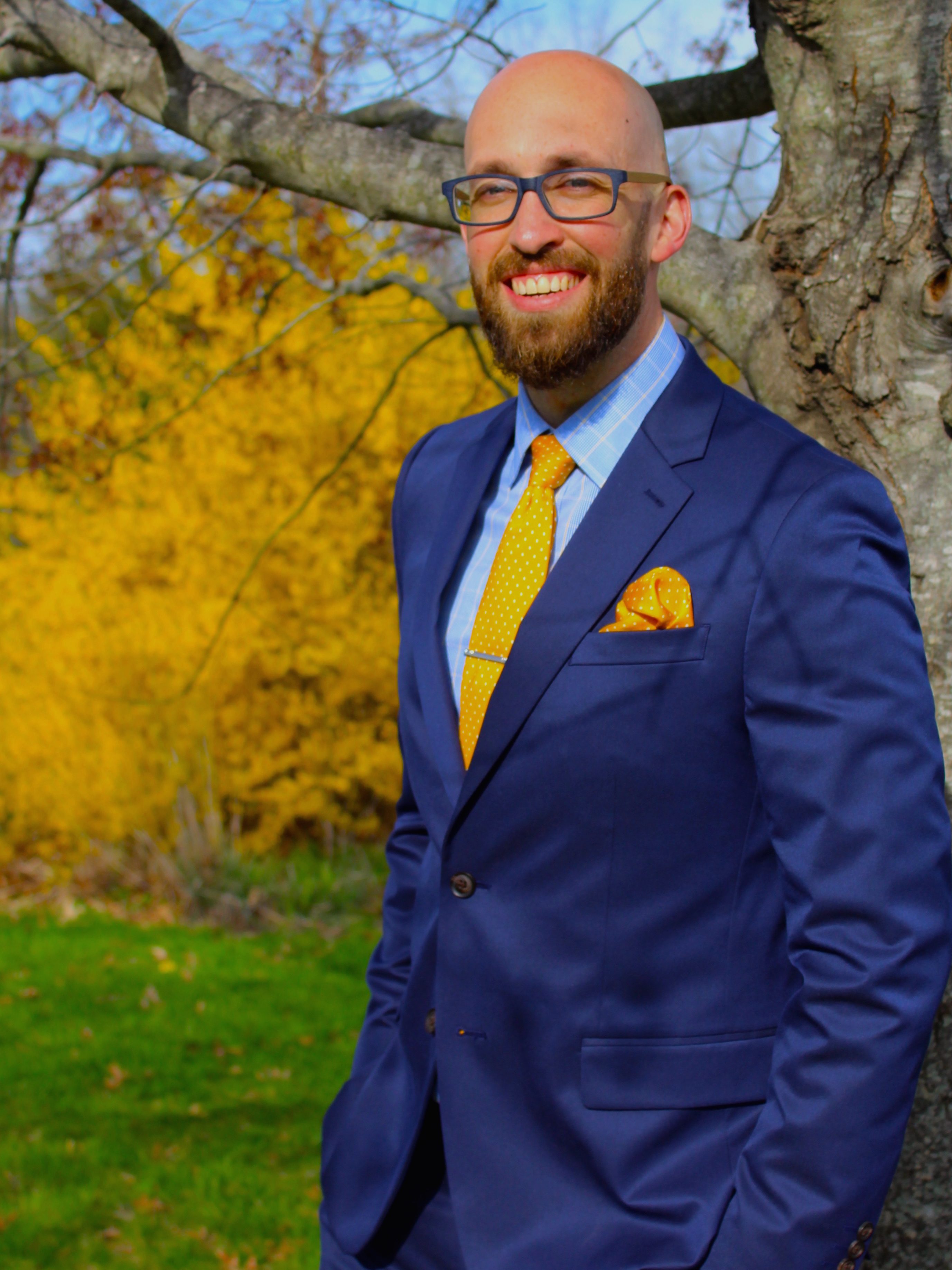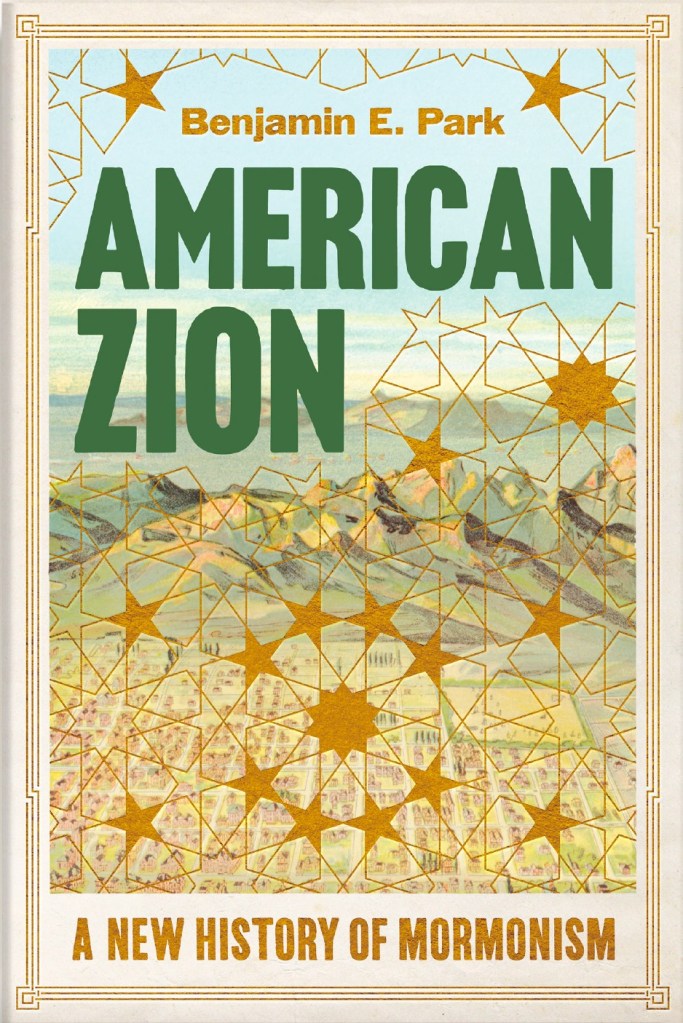
Benjamin E. Park
Associate Professor of History
Sam Houston State University
bpark@shsu.edu
Benjamin Park received degrees from Brigham Young University (BA, English and history), the University of Edinburgh (MSc, Theology in History), and the University of Cambridge (MPhil, Political Thought and Intellectual History; PhD, History). After spending two years as the inaugural postdoctoral fellow at the University of Missouri’s Kinder Institute on Constitutional Democracy, he joined Sam Houston State University, where he is now associate professor of American history. He runs a popular youtube channel and is currently president of the Mormon History Association.
Dr. Park is the author of American Zion: A New History of Mormonism, which appeared with W. W. Norton/Liveright in January 2024 and was listed as one of the “Best Books of 2024” by The New Yorker. It received the Phillip Schaff Prize for the Best Book in the History of Christianity from the American Society of Church History and was a finalist for the Best Book in Utah History from the Utah Historical Society. His other books include Kingdom of Nauvoo: The Rise and Fall of a Religious Empire on the American Frontier (W. W. Norton/Liveright, 2020), which won the Mormon History Association’s best book prize, as well as American Nationalisms: Imagining Union in the Age of Revolutions (Cambridge University Press, 2018). His edited volumes include A Companion to American Religious History, a textbook published by Wiley-Blackwell in January 2021, and DNA Mormon: Perspectives on the Legacies of Historian D. Michael Quinn, which appeared with Signature Books in December 2022.
American Zion is the tale of how a homegrown faith birthed through a family in crisis became a global religion that remains closely connected to American culture. It shows how the tradition has been shaped by two hundred years of culture wars, clashes that took place both inside as well as outside the institution. While prominent figures like Joseph Smith and Brigham Young receive extensive analysis, American Zion also gives attention to marginalized figures typically overlooked in grand syntheses. The book therefore provides background to how Mormonism became socially conservative, politically Republican, and culturally diverse. Such an investigation has only become possible in recent years as an increasing number of crucial sources have become available at the Latter-day Saint church’s archives. Reviews have called the work “respectful but not uncritical,” as well as an “engrossing read.” The first major history history of the religion in over a decade, American Zion reveals a profoundly divided faith that has nevertheless shaped the nation. It received positive reviews in The New Yorker, The Economist, Times Literary Supplement, and Harper’s Magazine, as well as coverage in Religion News Service and Salt Lake Tribune. You can read more about the book and its reception at this page.

Kingdom of Nauvoo tells the story of Nauvoo’s rise and fall between 1839 and 1846. It draws from a broad collection of primary sources, most of them overlooked and some of them used for the first time, to narrate a moment of political and cultural crisis on the frontier. In doing so, this book offers a case study of the perils of democracy in antebellum America. How should a nation govern those religions that fall outside the boundaries of acceptability? What happens when a religious group transgresses the line between church and state? How can marginal groups react when the voice of the many infringes upon the rights of the few? These were important questions for a nation still exploring the potential and pitfalls of democratic rule. The New Yorker called the book “compelling history,” and the Wall Street Journal said it was “one of the grand, underappreciated sagas in American history” written by “a smooth writer and a careful historian.” You can read more about the book, which was released in paperback in August 2021, here.
Dr. Park is completing his next project, which examines of how religious ideas instigated political action during the slavery and antislavery debates during the 1840s and 1850s. It is tentatively titled “A Higher Law: Theodore Parker and the Religious Underpinnings of American Abolitionism” and is under contract with Princeton University Press.
Other research has focused on the intersection between religion, culture, and democratic thought between the American Revolution and the Civil War, often within an Atlantic context. His scholarship has appeared in numerous journals, including Journal of the Civil War Era, Church History, Journal of the Early Republic, Early American Studies, Journal of American Studies, American Nineteenth-Century History, Journal of Religion and Society, Reviews in American History, Journal of Mormon History, and Dialogue: A Journal of Mormon Thought, as well as a dozen edited collections.

For his first book, American Nationalisms: Imagining Union in an Age of Revolutions, published by Cambridge University Press in 2018, Dr. Park examines how local contexts influenced ideas of nation and union during the fifty years following independence. How did citizens in a new nation conceive of political union and disunion in an age in which notions of the “nation” itself were undergoing transformation? Americans scrambled to project an image of a united nation, often drawing from intellectual currents that crossed the Atlantic world, yet those very projections served to introduce new political divisions. American Nationalisms traces the contours of this significant story, and demonstrates how debates over America’s cultural boundaries have been central to the country’s nationalist project since the beginning. It was a finalist for the Sally and Morris Lasky Prize in Political History, issued by the Lebanon Valley College Center for Political History.
Dr. Park has become a national voice for issues concerning American religion and politics. He has written over sixty op-eds and essays for Washington Post, Wall Street Journal, Newsweek, Time Magazine, Houston Chronicle, Slate, Religion & Politics, Talking Points Memo, Religion Dispatches, Dallas Morning News, Salt Lake Tribune, Religion News Service, and Patheos. (You can find links on the online writing page.) His interviews have appeared in popular programs like 99% Invisible, Brave Little State, Mormon Land, and Meaning of Life, as well as radio programs like NPR, RadioWest, Australia Broadcast Corporation’s NightLife, Sunstone’s Mormon History Podcast, and BYU Radio’s Top of Mind, as well as dozens other podcasts. He runs a popular YouTube channel with several new videos every week. He is also active in teaching history through social media on Twitter and TikTok.

An active participant in the fields of early American political, cultural, intellectual, and religious history, Dr. Park has been involved with a number of activities and associations. He served as a co-editor, with Quincy Newell, of the Mormon Studies Review, an interdisciplinary academic review journal that engages scholarly books on Mormonism for a broad academic audience, from 2019 to 2025. He was the founder and editor of The Junto: A Group Blog on Early American History, which served as a premier digital space for the field, and was also one of the founding editors of Juvenile Instructor: A Group Blog on Mormon History. He has served on editorial boards for Journal of Mormon History and Dialogue: A Journal of Mormon Thought, was a co-chair of the Mormon History Association‘s annual conference in 2016, and served on the executive boards for both institutions. He has also served on executive and program committees for the Society for Historians of the Early American Republic and the Society for U.S. Intellectual History.
Dr. Park currently resides in Conroe, Texas, with his wife and two children.
